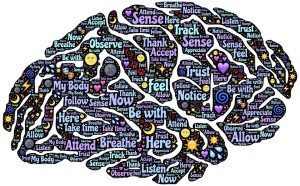 Today, the pace of modern life has significantly increased the chances of a person feeling stressed out during a given day. People who juggle multiple responsibilities including, issues related to work, home life, caregiving, relationships, etc., are prone to experiencing some level of stress. When this happens, your body responds as though you are in danger. It makes hormones that speed up your heart, make you breathe faster, and give you a burst of energy. According to WebMD, this is called the fight-or-flight stress response and it is a normal psychological and physical reaction to keeping up with today’s ever-increasing demands of life.
Today, the pace of modern life has significantly increased the chances of a person feeling stressed out during a given day. People who juggle multiple responsibilities including, issues related to work, home life, caregiving, relationships, etc., are prone to experiencing some level of stress. When this happens, your body responds as though you are in danger. It makes hormones that speed up your heart, make you breathe faster, and give you a burst of energy. According to WebMD, this is called the fight-or-flight stress response and it is a normal psychological and physical reaction to keeping up with today’s ever-increasing demands of life.
However, if stress happens too often or lasts too long, it can have bad effects. According to WebMD, it can be linked to headaches, an upset stomach, back pain, and trouble sleeping. Additionally, it can weaken your immune system, making it harder to fight off disease. Learning to identify problems and implement solutions is key. There are many ways to engage in stress management techniques. In this blog post, I’ll talk about one of the oldest ways and explain the significant health and cognitive advantages of engaging in such mindful activity.
Meditation dates back to ancient times and was spread to Western societies thousands years after it was adopted in the East. Throughout history, people have meditated to help deepen their understanding of the sacred and mystical forces of life, according to information on the Mayo Clinic’s website. It finally started to gain popularity in the West in the mid-20th century. In the 1960s and 1970s, professors and researchers began testing the effects of meditation and learned about its multitude of benefits. Robert Puff, Ph.D., summarizes some of this widely publicized research on meditation in a blog post published on Psychology Today. He explains, “In the late 1960’s, Dr. Herbert Benson of Harvard Medical School conducted some scientific studies to test the health benefits of meditation…He determined that meditation could be used successfully in treating physiological problems, such as high blood pressure, heart disease and migraine headaches, as well as autoimmune diseases such as diabetes and arthritis.” Repeated studies have demonstrated this ability of meditation to rewire the way your brain responds to stress.
 Contemporary researchers are now exploring whether consistent meditation practice yields long-term benefits, and noting positive effects on brain and immune function among meditators. Today, classes in meditation and mindfulness are even being incorporated within companies of different industries, especially in Silicon Valley. Yet it is worth repeating that the purpose of meditation is not to achieve benefits. To put it as an Eastern philosopher might say, the goal of meditation is no goal. It is simply to be present. In Buddhist philosophy, the ultimate benefit of meditation is liberation of the mind from attachment to things it cannot control, such as external circumstances or strong internal emotions. The liberated, or “enlightened,” practitioner no longer needlessly follows desires or clings to experiences, but instead maintains a calmness of mind and sense of inner balance. – Source
Contemporary researchers are now exploring whether consistent meditation practice yields long-term benefits, and noting positive effects on brain and immune function among meditators. Today, classes in meditation and mindfulness are even being incorporated within companies of different industries, especially in Silicon Valley. Yet it is worth repeating that the purpose of meditation is not to achieve benefits. To put it as an Eastern philosopher might say, the goal of meditation is no goal. It is simply to be present. In Buddhist philosophy, the ultimate benefit of meditation is liberation of the mind from attachment to things it cannot control, such as external circumstances or strong internal emotions. The liberated, or “enlightened,” practitioner no longer needlessly follows desires or clings to experiences, but instead maintains a calmness of mind and sense of inner balance. – Source
Furthermore, Poet and Zen Priest, Tai Sheridan says, sitting quietly can teach many ways to accept life, meet pain, age gracefully, and die without regret. He reminds us something very important in regards to meditation, especially among beginners… “You do not have to be Buddhist. You can be of any faith, religion, race, nationality, gender, relationship status, or capacity. Just sit quietly, connect with your breath, and pay attention to what happens.”